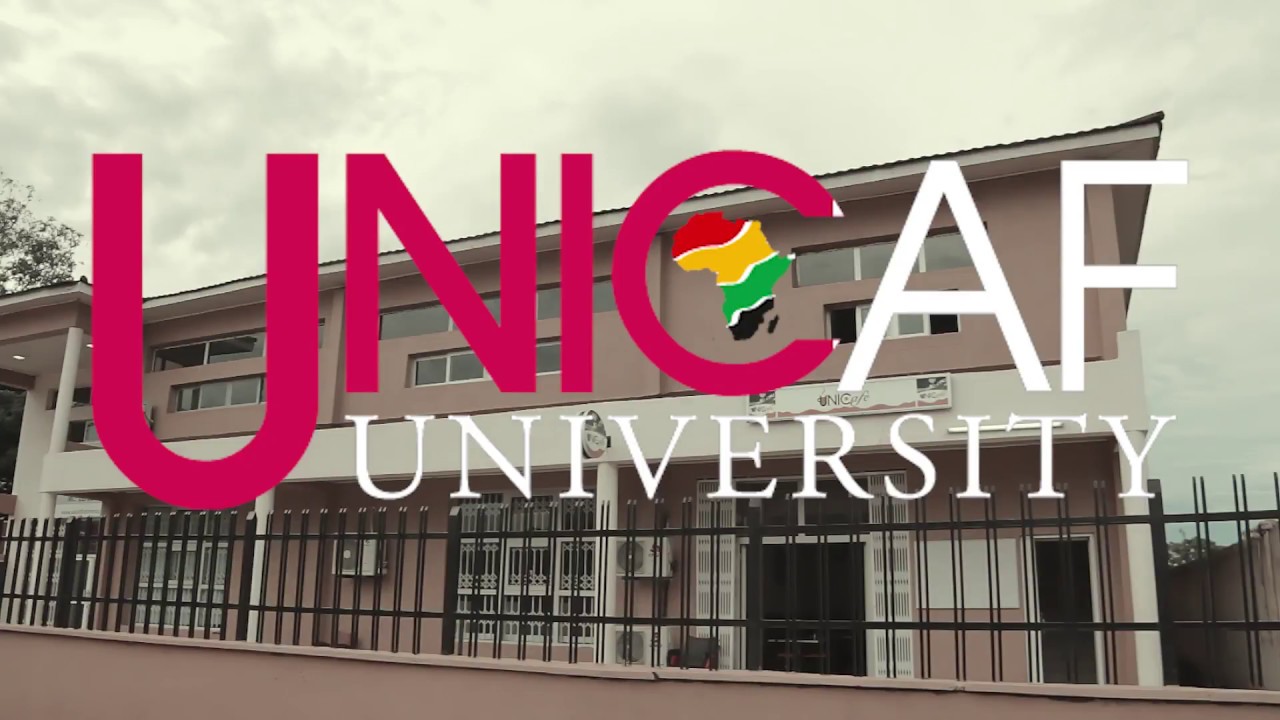UNICAF has set out plan to expand to 17 African countries following UN Call for investment in digital education. It was founded in 2012 as an online and blended learning higher education platform in sub-Saharan Africa that is dedicated to making higher education of international standard accessible to African professionals and young school leavers.
The COVID-19 pandemic unearthed the fault lines for what could be a generational catastrophe in education. Africa accounts for about 20 per cent of the world’s youth population; however, there is a dearth of quality and affordable higher education
Even before the pandemic resulted in school closures affecting over 1.6 billion students in at least 161 countries (https://bit.ly/3ydxErB), more than 250 million school-age children (https://bit.ly/3eGd6QM) were out of school globally.
In much of the developing world, the gap between the levels of learning that education systems provide, and the needs of students, communities and countries, has been steadily growing over the years.
Barriers to education in developing countries include political and security instability, costs, health and nutrition, distance to school, insufficient budgetary allocations to education, and poor-quality environments, content and processes. And now, even more school-age individuals are at risk of falling behind or dropping out of school permanently as the pandemic persists. This would widen inequality across an already unequal region with stark wealth, gender and social disparities, as well as stymie opportunity, innovation, and economic growth prospects—education is the cornerstone of building human capital.
In a recent interview with AfricaLive.net, Dr Nicos Nicolaou, the founder and CEO of Unicaf, a leading higher education online platform with students in 158 countries, set out his vision for a more robust education sector supported by digital infrastructure.
“In August last year, the UN Secretary-General stated that the education sector must invest in digital literacy and infrastructure and look to evolve towards learning how to learn, rejuvenate lifelong learning, and strengthen links between formal and non-formal education,” said Dr Nicolaou.
“He suggested the need to draw on flexible delivery methods, digital technologies and modernised curricula while ensuring sustained support for teachers and communities.”
Optimising Higher Education
A sustained increase in demand for access to education across Africa is unavoidable as populations grow, and given the role of education in modernisation and development, it is critical that governments increase higher education opportunities.
“Central to the discussion on sustainable development is the imperative of equality in higher education opportunities. Universities should offer holistic and transformational education with high-level quality content. Learning should be stimulating, engaging and learner-centric, leading to successful outcomes for the learners. Universities should inspire learners to be global citizens, assume active roles in the society they live in, and contribute to a more peaceful and sustainable world,” says Dr Nicolaou.
“Taking into consideration that tens of millions of additional students will become of university age in the next decade and the fact that there are no plans to build hundreds of new universities in the continent, the only solution is online learning,” he adds.
“The skilful use of modern technologies can enhance teaching and learning effectiveness and, thus, may substantially contribute towards the goals and objectives associated with sustainable, inclusive growth and development.”
“Distance education can eliminate current barriers to higher education in Africa, imposed by space and time, and can dramatically expand access to lifelong learning. Using flexible delivery models, students will no longer have to visit a physical location at specific times and days. A modern higher education institution, such as Unicaf University, no longer has to be at any specific physical location but, through the use of technology, can exist anywhere, anytime for students who wish to access study materials and complete a particular academic programme fully online.”
COVID-19 Has Changed Education Forever
There has been a high growth and adoption in education technology around the world in recent years, with edtech investments of up to USD 18.66 billion in 2019 (https://bit.ly/3y8qPrg), and projections for the online education market expected to reach USD 350 billion by 2025 (https://bit.ly/3uG4sqS). COVID-19 has accelerated the transition to the wider use of technology in delivering education.
“Because of COVID-19 online learning expanded dramatically. Almost all universities had to shift to remote learning to serve their students. In a very short time, everyone had to shift from face-to-face teaching to online, using a variety of technologies. The pandemic provided the catalyst needed for universities to move online and to use digital platforms for teaching and learning,” says Dr Nicolaou.
“What was considered to be the future has been accelerated to become the present; and my expectation is that this shift is here to stay, in one form or another. Various technologies, which are employed for online teaching, will reshape learning, both inside the classroom and beyond, well after the present pandemic subsides. In the same token, regulators have realised how crucial online education is and started encouraging universities to offer online programmes,” he adds.
The Future of Online Education in Africa
Africa accounts for about 20 per cent of the world’s youth population (aged 15-24), which is also the fastest growing in the world; however, there is a dearth of quality and affordable higher education. School enrolment rates at the tertiary level stand at 8 per cent, according to the UNESCO Institute of Statistics, significantly below the global average of 32 per cent. Online education has the potential to increase access to higher education, making it cheaper, more flexible and more accessible to a wider range of students, and that is what Unicaf does.
“Founded in 2012 and with headquarters in Europe, Unicaf is a leading higher education online platform with students in 158 countries, and also a scholarship programme, facilitating higher education studies at affordable cost. The state-of-the-art Unicaf digital platform provides access to quality university degree programmes and professional courses from reputable partner institutions in the UK, the USA and Africa, and is addressing an underserved part of the higher education market through an affordable and flexible online learning model,” says Dr Nicolaou.
The platform’s current partners (https://bit.ly/3eH3Snk) include Liverpool John Moores University (UK), the University of East London (UK), the University of Suffolk (UK), the University of California, Riverside Extension (USA), and a multi-campus Unicaf University in Africa—offering high-quality Bachelor, Master’s and Doctoral degrees at a fraction of the cost.
“During the pandemic, Unicaf has been able to demonstrate its capabilities and increase its reach. Unicaf’s state-of-the-art digital platform has helped thousands of students to study online towards an internationally recognised degree without being affected by lockdowns and other restrictive measures. Within the last 12 months, we have received thousands of applications from students interested to study through online programmes. This is additional proof of Unicaf’s dominance in Africa’s online education market and the strengthening of its brand and reach,” says Dr Nicolaou.
Spotlight on Africa’s Largest Online University
Developments in technology and changes to the global approach to teaching—including collaborative and project-based learning, mobile-friendly learning platforms, and adaptive personal learning—are not yet used at scale in Africa. Unicaf is expanding across the continent through a growing network of university campuses and learning centres offering blended and open learning options. Unicaf currently has a physical presence in 12 African countries and has plans to expand to five additional countries within the next two years.
“Unicaf and Unicaf University’s strategy is to continue expanding throughout Africa by obtaining additional university licences in new countries and enriching the portfolio of programmes they are offering. Along with its partner universities, Unicaf has already served more than 40,000 students, by awarding them over USD 100 million worth of scholarships to study for internationally recognised degrees at a fraction of the cost, and to positively transform their lives,” says Dr Nicolaou.
“Our software development team will continue developing new state-of-the-art technologies, aiming towards enhancing the existing technologies we use in our digital platform. Such technologies help all our operations become more efficient and more scalable,” he adds.
Unicaf’s platform provides students with several key benefits, including:
- Flexible delivery allows students to accommodate work and family responsibilities. Everything students need to complete their studies is embedded into the platform, including a digital library, e-books and other learning resources.
- Qualifications: Students can earn internationally recognised degrees from Unicaf University, or its British partner universities, at a fraction of the cost. It is accredited by the British Accreditation Council for Independent Further and Higher Education in the UK as an Independent Higher Education Provider. Students are therefore given the opportunity to earn degrees with international recognition and obtain valuable skills and credentials to enrich their professional qualities and help them advance in their careers.
- Scholarships considerably reduce the cost of fees, and any remaining balance can be paid in easy monthly instalments.
- Employment: Most students declare that they were able to find a better job, get a promotion in their current job and/or earn more money as a result of their studies with Unicaf. Unicaf University programmes are developed in collaboration with employers to meet their specific needs.
Accelerating Online Teaching Through Partnerships Between Universities and EdTech Companies
Unicaf has been a pioneer in international partnerships to provide opportunities for students in Africa to earn internationally recognised degrees for almost a decade. Dr Nicolaou believes that the success of such partnerships depends on “a shared understanding of the market, goodwill, close collaboration and shared interests and goals.”
The launch of the African Continental Free Trade Area (AfCFTA) this year will facilitate pan-African collaboration in higher education.
“With a population of 1.2 billion projected to reach 1.4 billion by 2040, Africa will become one of the biggest free trade areas with a very high commercial significance. This is good news for higher education too, and will heighten collaboration opportunities among universities in Africa in the areas of teaching, learning and research,” says Dr Nicolaou.
“For the African leaders of the future, Agenda 2063 sets out the need to refocus and reprioritise Africa’s agenda. Educating Africa’s future leaders is very important, as they are the ones who will strive to reposition Africa as a dominant global player. To support this goal, Unicaf continues to develop a suite of modern and affordable programmes, which offer specialist knowledge, underpinned by values-based ethical principles and practices.”
“Employability is vital for university students in Africa and is central to the mission and operation of Unicaf University.”

































